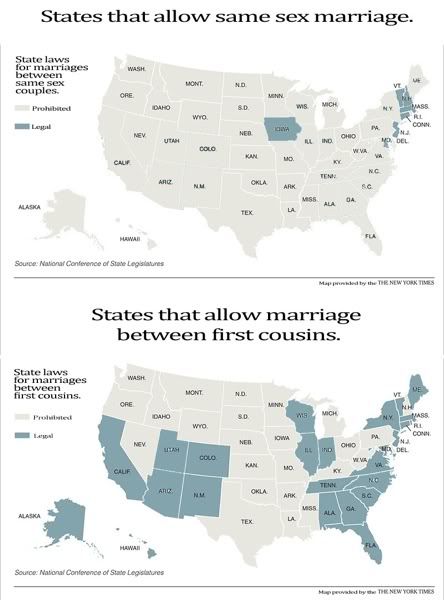I came across
this article in
The Times about the 'secret lives' of women. The lives they live in their heads that they never let their partners into. Everyone needs a personal psychological space, and I respect that. In fact, I wholly endorse it. I wanted to read the article, though, because talking to a reporter gives people an anonymity they would not have otherwise, and that gives them a chance to be honest in a way they simply couldn't be otherwise. I wanted to learn about these secret female spaces, so I could better respect them.
But boy... did I learn.
It turns out all those ugly stereotypes are true and women really are disingenuous, manipulative, emotionally vapid harpies with obsessions about sex, shoes, lying and... well, anything but their 'soul mates'.
Don't believe me? Here are some choice quotes... (Oh, and the article was written by a woman, so this is all straight from the horse's mouth)
If they’re looking to regain self-esteem, the first place they look is sex with someone new.
“It was brief and very intense. It filled a gap in my life, and what it highlighted for both of us [he was also married] was how terrified we were of losing what we had with our spouses. I am so glad that my husband never found out, because the damage would have been immense. But then I wonder sometimes whether he suspected and turned a blind eye, that he knew everything would be all right between us as long as I didn’t confess, that it was something transient.”
Some women would rather have affairs than tell their partners that they want more in bed, believes psychoanalytic psychotherapist Jenny Riddell.
Ruth, 43, deliberately initiated a one-night stand when she was abroad for work. “I had been married for ten years to my first boyfriend, and I think I just wanted to prove that I could. It made me feel wonderful, because I had never had that experience before.”
"And how terrific when the crush dissolves, as it inevitably does, to feel the innocence of one who has done nothing more than commit adultery in her heart."
Or take Susanna, 34, who works in human resources. She has been married for years, but is enjoying a series of erotic e-mails and texts with a man she would never consider actually having an affair with. “I have to turn my phone off at night; I can’t sleep because it is so exciting. I need this, because I know I met my husband too young. I love him and will be married to him for ever, but I need this kind of exciting distraction.”
Few men realise just how much their partners sigh inwardly at male stupidity – and then discuss it with their female friends.
Women tell blatant lies about any mishap that might reinforce female stereotypes – crashing the car, buying new clothes. “He has absolutely no idea how much I spend on my hair, and if he did, he would be horrified,” says Clara, 40, who works in publishing.
Many working women (myself included) keep a running-away account, often secret, a sensible precaution when experience shows that men cannot necessarily be relied upon to support us. I know how much money my husband doesn’t have, and he knows that I have money in a separate account. But he will never know how much, because we might need it for something far more important than his Arsenal season ticket one day.
“He gets cross when I buy organic apples. So I put £200 a month into this account so that I can buy all the little luxuries that I want – like strawberries out of season, or expensive make-up – without him noticing. I want that freedom to be able to spend money frivolously, but I also don’t want that to be a sticky aspect of our marriage.”
“Men are so simple. They think we are complicated and devious, but they don’t think to ask us what we want, and we don’t say,” says Clara.
I used to think all those love songs were about men and women,” a new mother told me for my book Life After Birth. “But it is only now that I understand how all those words are really meant for your child."
“If he were killed in a car crash, I’d be more worried about how it would upset the children. I could cope with my grief, but I am not sure I could cope with theirs.”
There is a big difference between hiding an ongoing affair, where you have fallen out of love with your partner but can’t bear to end the relationship, and the casual fling, which was unfortunate, but didn’t mean anything. Not every affair needs to be confessed, particularly if your prime motivation is to appease your own guilt.
And what about their sample?
Sarah, 35, Company manager;
Helen, early 50's, travels abroad regularly for work;
Evie, 45, married to her childhood sweetheart for 25 years, 2 children, finacial difficulties;
Ruth, 43, abroad for work;
Caroline, 45, an architect;
Susanna, 34, HR;
Pat, early fifties, local government;
Clara, 40, publishing;
Carmilla; earns a small fortune in the City of London;
Joanne, 40, lawyer;
Ah, I see the white, upper-middle class career-type is well represented. Which is good, because it's a known, proven-by-science
fact that they can speak for
every woman, everywhere. Such a representative sample also rules out the possibility that the similarities in their views and experiences might be down to similarities in their circumstances and lifestyles, rather than solely due to their sex.
I think the best bit has to be the quotes from actual, real women on pages 3 and 4.
Thank you, Murdoch press, for bringing the truth! I'm so glad that the truth, once again, panders to my insecurities and reinforces my sense of entitlement. I'm really grateful you're here to protect me from a world where I might have to think and challenge the assumptions I hold about people who aren't me!




















